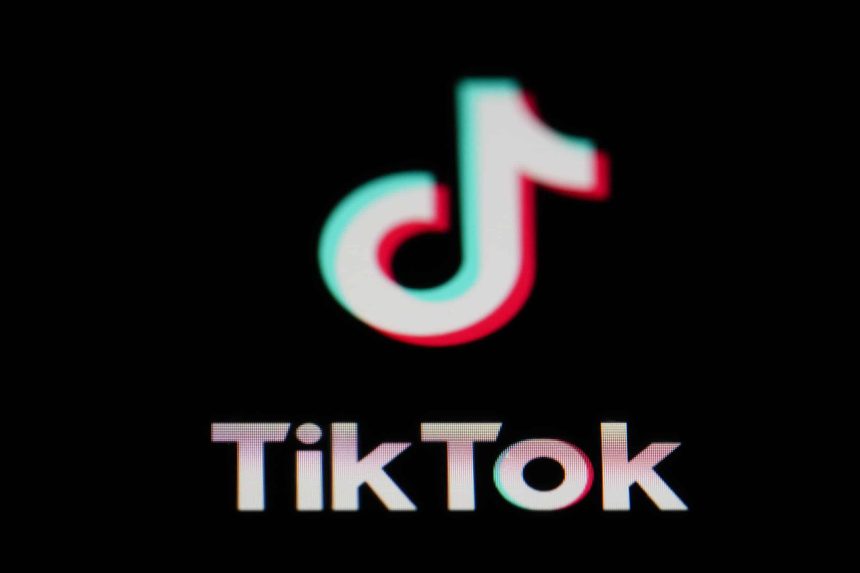Popular social media platform TikTok will soon be no longer on some federal government-issued phones over continued concerns that the China-based app may be stealing personal security information.
This week, members of the U.S. House of Representatives and their staffs will have to delete TikTok off any phones managed by Congress. According to Fox News’ Ashley Strohmier, the move will be made by Thursday at the latest.

The U.S. and the popular social media app’s parent company, ByteDance, are embroiled in a multilayered legal battle that will determine if – or how – TikTok will continue to operate in the country.
Lawmakers in both the House and Senate passed legislation in April requiring ByteDance to sell the platform to an approved buyer by a tentative shutdown date of Jan. 19, 2025, if it wants to continue operating in the U.S. Democratic President Joe Biden later signed the legislation as the Department of Justice (DOJ) vouches that the platform is a national security concern with the rival country being able to use it to not only steal users’ data but to spread pro-China propaganda.
In response, a group of diverse content creators – including Mississippi’s very own, conservative rapper Christopher “Topher” Townsend – joined forces to file suit against the U.S. government. Claiming elected officials are trying to censor them and others who use TikTok to practice free speech. Townsend, in a video posted after the May filing, made it clear that he believes the government trying to nix the social media app “especially when they haven’t provided evidence” is a violation of his Constitutional rights.
“I’m against government overreach,” the Air Force veteran and musician said. “Specifically to the TikTok ban, this is an infringement upon our First Amendment right. As Americans, we should be able to choose whatever app we want to use.
“The government doesn’t have the right to tell us what we can’t use, especially when they haven’t provided evidence to show the danger of said app that is unique to TikTok and not common on other social media platforms. I’m fighting against it because that’s what you do as a patriot.”
While no movement has been reported from the group of creators’ case against the government up to this point, the DOJ has continued to double down. On Aug. 2, it filed another complaint, this time accusing TikTok of violating a children’s online privacy law and violating a settlement it had reached with the Federal Trade Commission (FTC) to not collect personal information of children under 13. Like the other allegations, TikTok and its parent company have vehemently denied wrongdoing within its American user base.
TikTok said in an official statement that it disagreed with allegations in the latest filing, “many of which relate to past events and practices that are factually inaccurate or have been addressed.”
“We offer age-appropriate experiences with stringent safeguards, proactively remove suspected underage users and have voluntarily launched features such as default screentime limits, Family Pairing, and additional privacy protections for minors,” the statement continued.
In 2019, the U.S. sued Musical.ly, alleging it violated the Children’s Online Protection Act by failing to notify parents about its collection and use of personal information of kids under 13. That same year, Musical.ly – which was acquired by ByteDance in 2017 and merged with TikTok – agreed to pay $5.7 million to resolve those allegations.
The latest complaint from the DOJ and FTC alleges TikTok allows children to create accounts without having to provide their age or obtain parental approval through credentials from third-party services such as Meta’s Facebook, among other concerns that allow children to avoid using the platform’s “Kids Mode.”
TikTok isn’t the only platform under fire in the U.S. for collecting children’s personal information, though. Also in 2019, Google and YouTube agreed to pay $170 million to settle similar allegations while Meta is currently being sued by 41 states and Washington, D.C. for data collection concerns.
In January 2023, Mississippi joined a growing list of states when Gov. Tate Reeves announced that all state government-issued phones would not be allowed to use TikTok. As of April 2023, 34 out of 50 states had enacted such bans on agencies, employees, and contractors using TikTok on government-issued phones.
If the looming TikTok ban for non-government users does come to fruition, the app will be losing nearly 150 million of its over 1 billion worldwide users. However, with it being election season, both Republican nominee Donald Trump and Democratic nominee Kamala Harris have disregarded the DOJ’s concerns and used the app as a way to reach young voters. Each candidate joined TikTok during the summer months of this year and has amassed over 5 million followers apiece.







